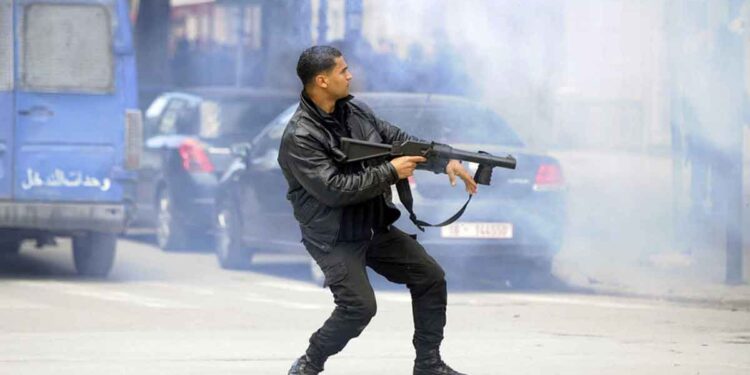Today, Sunday, Tunisian security forces fired tear gas at citizens who marched to the parliament headquarters in the city of Bardo to protest against the exceptional measures taken by Tunisian President Kais Saied since last July 25, which they considered a coup and a step back from democracy.
Tunisian security forces closed the entrances to the parliament headquarters to prevent citizens from participating in the sit-in.
Police forces have been deployed since the morning in the vicinity of Parliament, while iron barriers have been set up to prevent protesters from approaching Bardo Square.
Peaceful dissidents, calling themselves “citizens against the coup”, called on their supporters in the rest of the states to participate massively in today’s protest in the capital, however the police closed all the ways leading to Bardo Square, opposite Parliament.
Opponents demand the return of the Tunisian parliament’s activity, ending the suspension of the constitution, and the formation of a national salvation government.
Since last July 25, Tunisia has been experiencing a severe political crisis, as President Kais Saied has taken a series of decisions, including freezing the competencies of Parliament, lifting the immunity of its MPs, abolishing the constitutionality monitoring body, issuing legislation by presidential decrees, becoming the head of the Public Prosecution, and dismissing the Prime Minister, provided that he assumes the executive power with the assistance of the government.
Following the announcement of the Tunisian President of his extraordinary measures, Journalists and media institutions in Tunisia have been subjected to restrictions, security prosecutions, arrests, and judicial restrictions for their activities.
Moreover, the security forces arrested a number of members of the Tunisian Parliament, which raised fears of human rights institutions that Tunisia will enter an era of tyranny and totalitarianism and disrespect the law, human rights and freedom of expression, especially since some of these arrests came were based on military judicial orders against civilians.






























